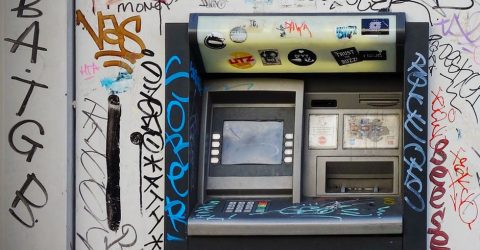Parliament calls for overhaul of cash system

With Link’s new proposals to reduce fees and cash purchases continuing to decline, Parliament’s Treasury Select Committee has called for a root and branch overhaul of our current access to cash to prevent vulnerable people being excluded.
It has been clear for some time that the growth of plastic and contactless payments has led to a decline in the use of cash for purchases. According to recent data cash purchases declined by one percent in 2017 and now accounts for just 22% of all purchases made in the UK. This, at a time, when there were 20 billion retail transactions during 2018.
The latest data follows an 11% decrease of cash payments between 2015 and 2016, even though, at the same time, the value of notes in circulation increased by 10%.
UK Finance, who represent banks, estimate that some 2.7 million people in the UK currently rely almost entirely on cash.
Last year consumer group Which? estimated that around 300 automated teller machines (ATMs) were disappearing every month, amounting to a 2% shrinkage of the entire network. At present there are some 70,000 ATMs in the UK. Which? has recently called for a new regulator to oversee our cash system.
Currently, of those 70,000 machines, 40,000 are provided by independent suppliers. These machines charge for withdrawals which accounts for 3% of all transactions.
ATMs come under the guidance of the UK Link system, which consists of 30 members who make up the network. These members include high street banks and building societies as well as companies involved in the sector.
According to figures it costs £900 million per year to operate the network and is based on a fixed formula called the ‘interchange fee.’ Under this formula card issuers pay a fee to the machine providers to cover those costs. But with the decline in cash transactions the fixed formula means costs are rising.
Link has set out proposals to reduce the amount it charges card issuers to allow customers to use ATM machines from 25pence per withdrawal to 20pence. The changes are expected to come into effect in April.
But the Treasury Select Committee has argued that the new proposals must take into account that people still need access to cash, particularly, thy said, in rural areas which, historically, have been badly serviced. Many rural communities have long complained that the ATMs are of a poor quality and consequently costing businesses such as rural Post Offices a lot of money to run them.






